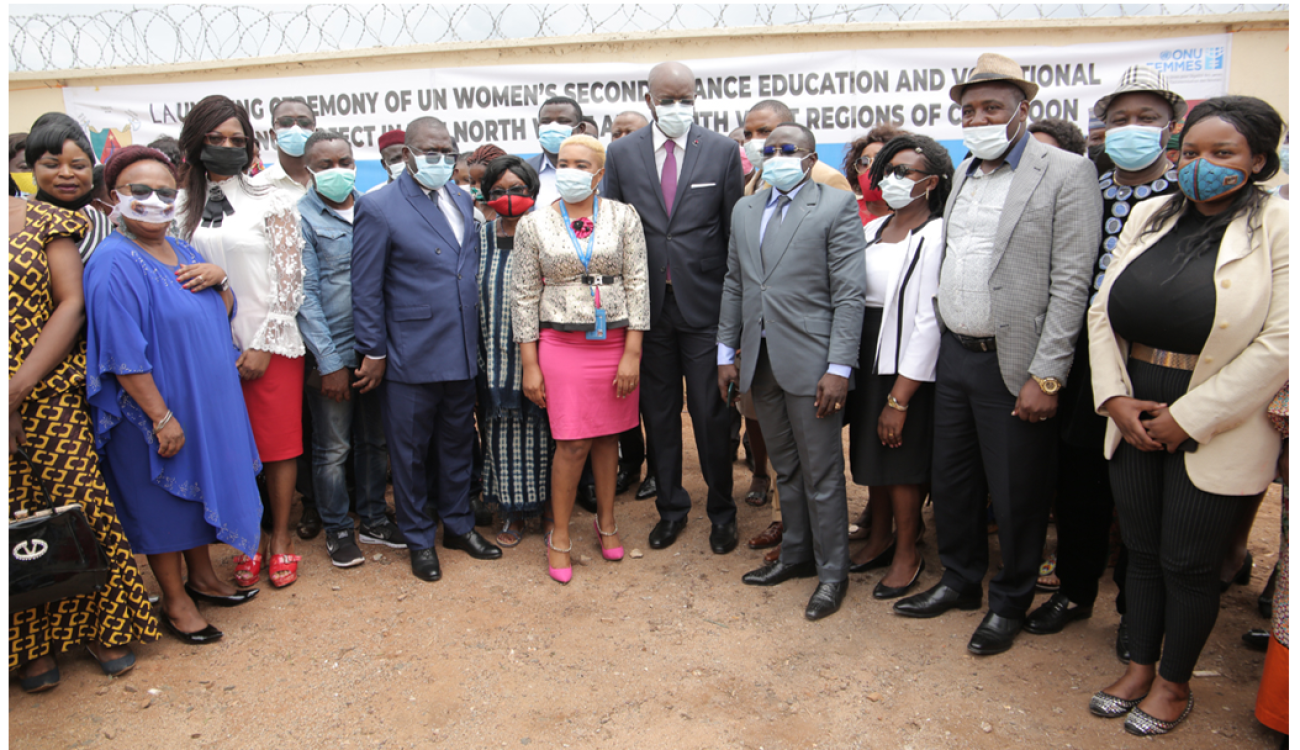UN Women Cameroon Launches SCE Project in the Northwest and Southwest Regions from 26 of April -04 of May 2021

Second Chance Education and vocational learning Project (SCE) is a UN Women’s Project that aims at breaking current trends and providing comprehensive solutions
Southwest 26-29 April 2021 and Northwest 01- 4 May 2021. Second Chance Education and vocational learning Project (SCE) is a UN Women’s Project that aims at breaking current trends and providing comprehensive solutions for marginalized women and young women who have missed out on education and who are at risk of being left behind. SCE is executed under the canopy of UN Women’s Leadership, Empowerment, Access & Protection in Crisis Response (LEAP) program that addresses immediate needs of refugees, IDPs and host communities. In this light, the implementation of SCE in Cameroon focuses on conflict affected areas. The project started in Cameroon in 2018 in the East, Admawa and Far north regions and has reached almost 12,000 men and women, providing 2500 women and girls with professional trainings (Crop farming, animal husbandry, petty trade and tailoring) and start-up kits that has enabled them to become autonomous. The grandiose results recorded so far in three regions (East, Adamawa and Far North), impressed the funder who committed to extend the project in North West and South West regions that are also presently facing socio-political crisis.
It is against this backdrop that the SCE project was launched in the NW and SW Regions that presently show high school dropout rates due to sociopolitical crisis that started in 2016. The objective of the launching was to raise awareness on the upscaling of SCE Project in NW and SW regions and to ensure that the right beneficiaries are identified. Two Senior Divisional Officers (SDO) in the two regions chaired the launching ceremony and participants in the launching ceremony included International Organizations, Civil Society Organizations, community leaders, mayors and school dropout women and girls. The initiative was highly lauded and the SDO in his opening speech beseeched the population to support the beneficiaries in the training process to better contribute to the effective realization of the objectives of the project. Considering the differences in the natural, socio-cultural and economics characteristics in the intervening regions, the launching ceremony was accompanied by the pre-needs assessment that captured these differences. The result will inform a detailed labor-market assessment in the two Regions. The Focus Group Discussions (FGD) held with the different groups (Mayors, Community leaders, Civil society originations and school dropout girls) provided information on the causes of school drop, the consequences, and identified solutions and potential activities in the sites that would benefit women and girls.
Though the ongoing sociopolitical crises remains the main cause of the high rate of school dropout, other causes like cultural, financial, boy child preference, peer influence etc. were also identified. The consequences of school dropouts are very concerning. Some of the girls have joined the separatist fighter in the bushes, some got unwanted pregnancies, some single mothers, some were rejected by their families and community members, and some got illnesses from transactional sex and many are living on streets and in bushes. Unlike in the first three pilot regions (Far North, Adamawa, and East) where most of the girls wanted to do businesses to ern a living, 90% in the NW and SW regions would prefer to continue with their education. The identified Potential activities that would be profitable included pisciculture, tailoring and embroidery, crop farming, animal husbandry, petty trade. Media was equally highly engaged to for nationwide dissemination of information on the extension of SCE in the NW and SW Regions.

